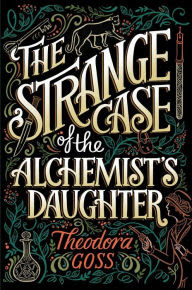Trish Doller
 Trish Doller's new YA novel is In a Perfect World.
Trish Doller's new YA novel is In a Perfect World.
From her Q&A with Deborah Kalb:
Q: Why did you decide to set your new novel in Cairo, and how did you come up with the idea for your characters Caroline and Adam?Visit Trish Doller's website.
A: It's been a dream of mine to write a romance set in another country, but I knew I wanted to step outside Europe. Early on, I decided that Caroline's mother would be going to work in another country, but it wasn't until after I looked at the Doctors Without Borders website, that I knew she was going to work for a humanitarian agency.
From there, Cairo presented itself as the perfect setting because it's accessible, plausible, and impossibly romantic. I could easily see Caroline falling for someone whose culture and faith were very different from hers.
And to be completely honest, I loved the idea of an Egyptian boy being cast as the romantic hero, instead of the villain.
Q: How was the novel's title chosen, and what does it signify for you?
A: The title came to me very early on because this is the story of two people whose...[read on]
Coffee with a Canine: Trish Doller & Cobi.
--Marshal Zeringue





























